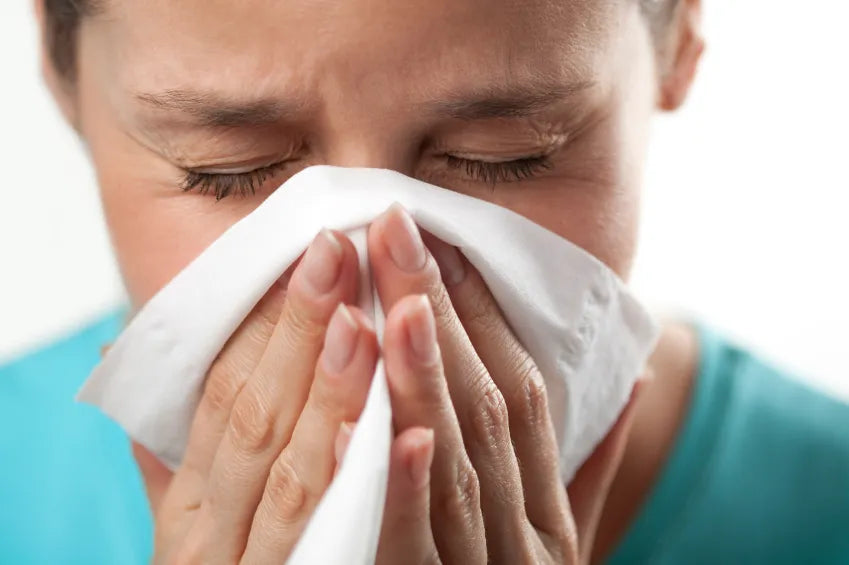

· By Jennie Hoglund
Why Never Getting Sick is Actually Not So Healthy
We hear it often:
“I haven’t had a cold in years.”
“My immune system must be really strong — I never get sick!”
Just how true is it that people who don’t sniffle and sneeze along with the rest of us are healthier?
Not very, in my opinion. As a Classical Homeopath and holistic health care practitioner, I have come to a rather unique understanding of how health and disease affect a person as a whole, and what I have learned is that there is often great value in acute illness because it facilitates overall health of the individual.
For example, take the patient who “never gets sick.” He may be anxiety-ridden, suffering from aches and pains, terribly constipated, yet never catches a cold.
Does this mean he is healthy?
On the contrary. His immune system is simmering at the sub-acute level, unable to mount an immune response to a virus, because it is too busy. Managing a mental-emotional disorder, back pain, and digestive issues is a full-time job, and the body has no resources available to produce an acute illness.
So while this man may never be sick acutely, he is actually more deeply ill.
Sadly, this scenario is very common today, and is rapidly becoming the norm with middle-aged and older people, and even a fair number of kids.
It always sends up a red flag for me when I hear that a child is perpetually well, with no colds or flus. An immune system should be busy developing during childhood, and the complete absence of illness indicates to me that something big is brewing beneath the surface.
The same is true of a child that is ill too frequently. Something is amiss on a deeper level that leaves the immune system continually cycling, unable to find resolution.
A big part of my work is educating people about what a healthy immune system actually looks like, which is not the absence of symptoms. I tell clients to expect 1–3 colds per year for a healthy adult, and up to 6 per year for a child.
Acute illness is not always the enemy we have made it out to be in our culture, and as it continues to be suppressed by conventional medical practices, we’ve started to pay a very high price.
Through overuse of antibiotics and suppressive medications and procedures, we have essentially traded acute illness for chronic disease. We’ve swapped fevers for fibromyalgia, colds for chronic fatigue, and coughs for asthma and eczema.
Making room for, and allowing mild illnesses such as colds, coughs, and fevers to run their course when possible (and when safe), without suppressive intervention, is always advantageous to the patient. When the infectious process is continually interrupted, it results in suppression of that illness, and the onset of chronic disease.
When the cycle of illness is allowed to complete, a person is often healthier on the other side, because the internal immune process has been allowed to function as nature intended. With awe and wonder, I have often observed the natural disease process occurring in a patient, leaving behind a gift in the form of a developmental leap, resolution of asthma or eczema, or healing of an emotional imbalance.
So, how does Homeopathy fit into the picture?
Homeopathy is unique in that it’s remedies can assist the body through acute illness, supporting it in just the right way to allow the process to find resolution, while at the same time helping to keep the patient as comfortable as possible. We also use Homeopathy on the chronic level to address deeper issues.
During Homeopathic treatment, the patient’s system is stimulated to begin “unwinding” these layers of illness, so that eventually the immune system can function at the acute level.
Homeopathy is about helping the body to gently come into balance, resting in a place of optimal functionality, which includes producing a vital reaction to illnesses in the environment.
Using Homeopathic remedies allows us to tap into a person’s own innate healing abilities and help the body’s system to heal from the inside out, bringing wellness to the deepest aspects of ourselves. And while it may be accompanied by a runny nose and sneezing, perhaps even a cough or fever, this is true health.
Read Why Homeopathy Should be at the Top of your Self Care List, to learn more about how Homeopathy works, and read more about me and my practice here.
